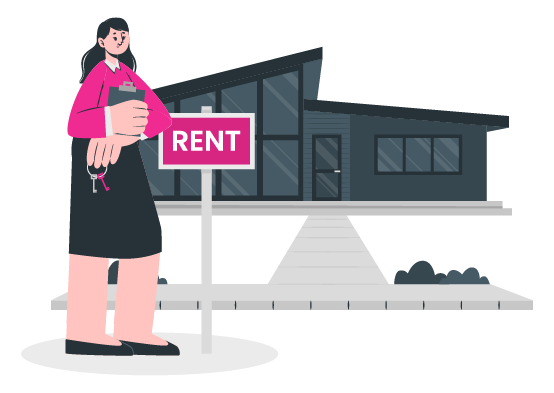Renting a property in Ireland might seem like a straightforward process at first glance. You search for a place that fits your budget, sign the lease, and move in. But for many tenants, particularly those new to the Irish rental market, there are a range of hidden costs that can catch you off guard if you’re not prepared. In this guide, we uncover the real tenant expenses in Ireland and offer practical tips for avoiding unwanted surprises.
Understanding the True Cost of Renting a Property in Ireland
The rental market in Ireland has become increasingly competitive in recent years. With high demand in cities like Dublin, Cork and Galway, tenants are often so focused on securing a property that they overlook additional expenses. To make an informed decision, it’s essential to look beyond the monthly rent.
Below, we break down the key hidden costs and explain what to look for when renting a property in Ireland.
1. Security Deposits and Upfront Payments
When renting a property in Ireland, landlords typically require a security deposit equivalent to one month’s rent. This is intended to cover any damages beyond normal wear and tear. However, some landlords may also ask for the first month’s rent upfront, meaning you could be paying two months’ rent before even moving in.
Advice: Always confirm the amount required in advance and make sure the deposit is protected in accordance with the Residential Tenancies Board (RTB) regulations.
2. Letting Agency Fees (Where Applicable)
Although most private rentals no longer charge tenants letting agency fees, some exceptions may still exist, particularly in commercial leases or in arrangements where the landlord is based overseas.
Advice: Ask clearly whether you will be responsible for any agency fees when negotiating your lease.
3. Utility Bills and Service Charges
Monthly rent usually does not include utilities such as electricity, gas, water or internet. In apartments or managed developments, service charges may also apply to cover communal cleaning, waste disposal or lift maintenance.
Advice: Ask the landlord or letting agent for a breakdown of what’s included and get an estimate of monthly utility costs based on previous tenant usage.
4. Contents Insurance
While landlords are responsible for insuring the property structure, tenants are typically expected to cover their own belongings. This cost is often overlooked but can be critical in case of fire, flood, or burglary.
Advice: Look for affordable contents insurance policies that cover accidental damage, personal items, and liability.
5. TV Licence and Bin Charges
If you own a television or use any device to watch live TV or RTE online content, you’re legally required to have a TV licence, which costs around €160 per year. Similarly, not all bin collections are included in rent, especially in houses.
Advice: Confirm who is responsible for waste charges and remember to budget annually for your TV licence.
6. Maintenance and Repairs
Legally, landlords are responsible for structural repairs and maintenance. However, minor issues such as replacing light bulbs, batteries in smoke alarms, or garden upkeep may fall on the tenant.
Advice: Clarify maintenance responsibilities in writing before signing the lease.
7. Parking and Transport Costs
If the property includes parking, check whether it’s free or if there’s an additional charge. Properties near public transport may command higher rents but could save on car-related expenses.
Advice: Weigh your transport options and factor in the full cost, whether you’re commuting by car or train.
8. Furnishing and Home Setup
Not all rentals are fully furnished. You may need to purchase basic furniture, kitchen appliances or soft furnishings to make the space liveable.
Advice: When viewing properties, take note of what’s included and prepare a checklist of what you’ll need to buy.
9. Inflation and Rent Reviews
In Ireland, rent increases are regulated under Rent Pressure Zones (RPZs). However, outside of these areas, rent may rise more substantially. Even within RPZs, annual increases are permitted.
Advice: Review your lease terms carefully and ask about the landlord’s rent review practices.
10. Exit Costs
When moving out, you may face unexpected costs such as professional cleaning to meet the lease agreement, or deductions from your deposit for perceived damage.
Advice: Take dated photos when moving in and out to protect your deposit. Keep a record of all communication with the landlord.
Final Thoughts on Renting a Property in Ireland
Understanding the real costs of renting a property in Ireland is crucial for budgeting and long-term planning. Hidden rental fees can add up quickly, especially for first-time tenants who are unfamiliar with the process. By proactively asking the right questions and reading the lease agreement thoroughly, you can avoid most surprises.
At FindQo.ie, we aim to make your rental journey more transparent and stress-free. Our platform connects you with verified listings, local agents, and helpful tools designed to give you peace of mind when renting in Ireland.
Ready to find your next home? Start your search today at FindQo.ie and rent with confidence.

